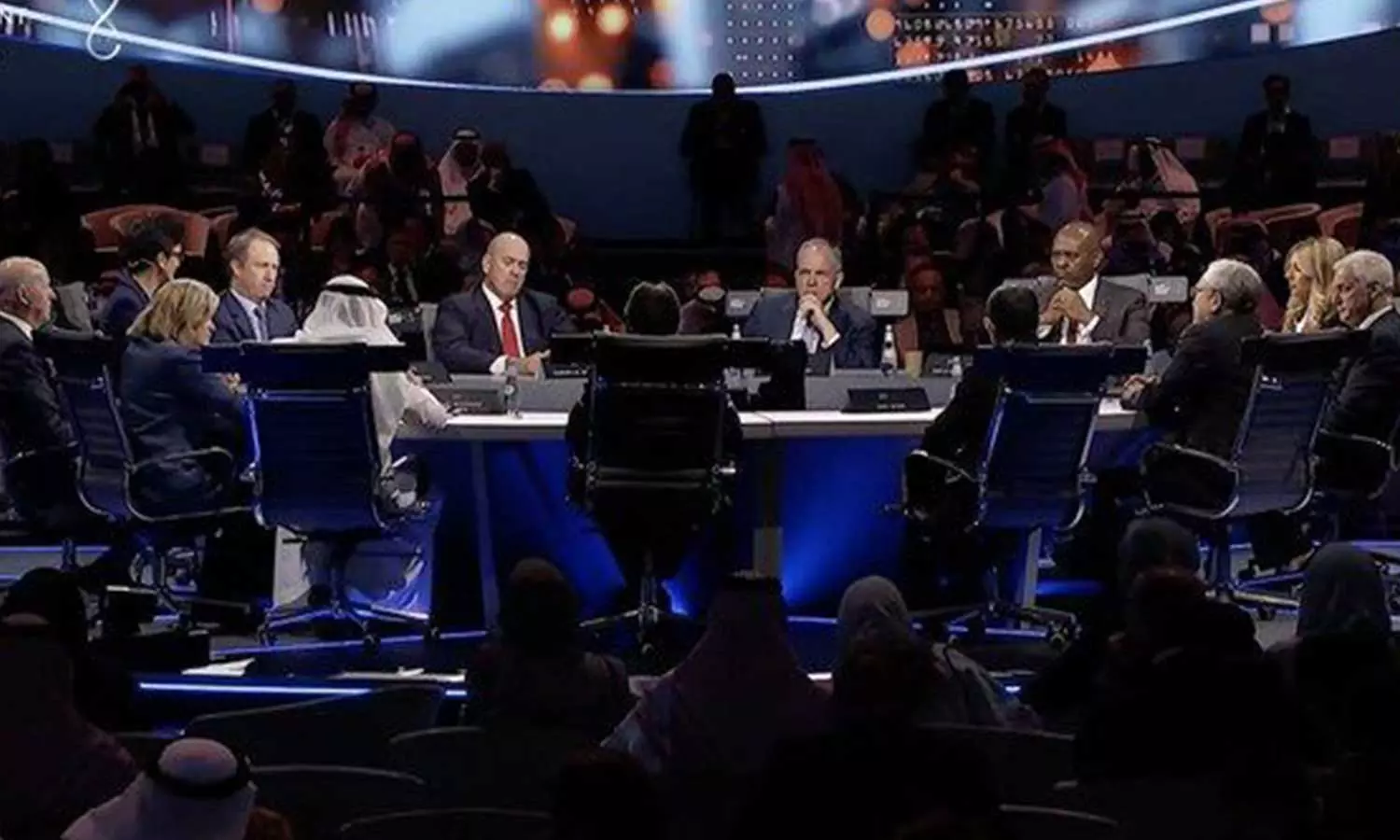
Experts Highlight GCC’s Economic Resilience Amid Global Challenges
 |
|Other prominent voices at the panel echoed his concerns over the global economic slowdown and its impact on regional markets.
Saudi Arabia and the broader Gulf Cooperation Council region have emerged as “bright spots” amid an increasingly complex global economy, executives said at a business forum. Speaking during a roundtable at the 8th Future Investment Initiative event in Riyadh, Muhammed Al-Jasser, chairman of the Islamic Development Bank, highlighted that while the global economy faces challenges — from inflationary pressures to political volatility — the GCC has demonstrated remarkable resilience.
However, he cautioned that ongoing regional conflicts and disruptions in global stability could undermine the region’s growth potential, affecting trade flows and investment opportunities that have driven recent economic growth. “The GCC as a whole stands out economically, but this has not shielded us entirely from external instability,” Al-Jasser said, adding that the region’s open economies remain interconnected with global trade dynamics, especially with major players like China.
He added: “The potential that was waiting to be cultivated is now at risk of evaporation amid these geopolitical uncertainties,” stressing that the disruption of intra-regional trade flows could have lingering impacts on growth in the Middle East and North Africa region. Al-Jasser’s perspective was reinforced by his point that Saudi Arabia’s counter-cyclical economic policies and monetary stability have allowed the Kingdom to recover faster than expected after a period of contraction last year.
Other prominent voices at the panel echoed his concerns over the global economic slowdown and its impact on regional markets. Goldman Sachs CEO David Solomon addressed the ongoing challenges in global capital markets, observing that while there has been some improvement in 2024, major capital-raising activities like mergers and acquisitions remain below their 10-year average. He attributed this to global economic uncertainty but also suggested a cautiously optimistic outlook, saying: “There’s no reason capital markets activity shouldn’t be returning to trend, if not exceeding it, given recent expansions in market cap over the last five years. I believe 2025 and 2026 will see stronger activity.”
Citi Bank CEO Jane Fraser highlighted the increasing importance of the GCC to multinational corporations, noting that as Saudi Arabia develops its financial ecosystem under Vision 2030, the Kingdom has become an attractive environment for global investment. Fraser added, however, that “stability in the region will be essential for sustaining these investment flows.”
In a broader analysis, State Street Corp. CEO Ron O’Hanley emphasized the lack of growth in many global markets, attributing much of the resilience in regions like the GCC to adept fiscal policy and stable energy prices. “Last year, many were forecasting a global recession,” O’Hanley said, “but we’ve largely managed to avoid that, thanks to both policy moves and stability in key sectors. However, the lack of significant global growth remains a critical challenge.”
The discussion also touched on the transformative role of alternative financing solutions in responding to global capital needs. Franklin Templeton CEO Jenny Johnson pointed to the expanding role of private credit, suggesting that it has become an essential piece of the capital landscape as bank lending faces regulatory restrictions.
“With tighter bank capital requirements, private credit is increasingly filling the gaps, particularly in growth-focused regions like the Middle East,” Johnson said, arguing that this trend would likely continue as companies look for liquidity sources to support innovation and expansion.
Apollo Global Management CEO Marc Rowan further elaborated on this convergence between traditional and private finance, emphasizing the efficiency of capital flow into diverse markets, particularly within the GCC, where growing industrial sectors demand substantial investment. “The US may provide half the world’s capital,” Rowan said, “but partnerships between public and private sectors are crucial to meet global demands, and we’re seeing this partnership flourish in regions like Saudi Arabia.”
In closing, Al-Jasser returned to the region’s prospects, urging global investors to look past short-term geopolitical risks to recognize the enduring potential of the GCC as a stable, diversified economic zone.